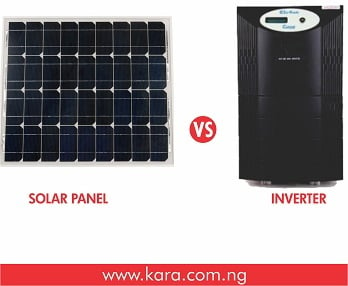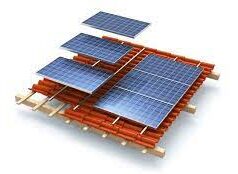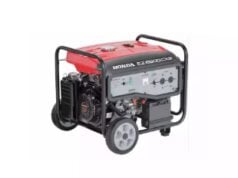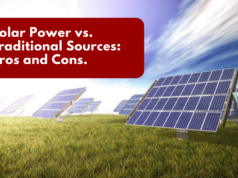 The epilepsy power supply in Nigeria is forcing many companies out of business. Many that their businesses needed steady power supply are having re-think on whether changing of business will be the best option. Recently i read in one of the dailies that a manufacturing company spends more than six hundred and fifty thousand naira {#650,000} monthly on diesel and fuel to keep up with business. This amount is too much!
The epilepsy power supply in Nigeria is forcing many companies out of business. Many that their businesses needed steady power supply are having re-think on whether changing of business will be the best option. Recently i read in one of the dailies that a manufacturing company spends more than six hundred and fifty thousand naira {#650,000} monthly on diesel and fuel to keep up with business. This amount is too much!
But with solar panel you don’t need to spend such huge amount on diesel or fuel. Here is the Almighty solution to the problem.
INVERTER AND SOLAR PANEL
Inverter is a power generator that uses battery instead of fuel or diesel. when acquired you don’t need additional cost to run it.
Solar panels get energy from the sun to create electricity. Solar panels make renewable energy. A common misconception about solar panels is that they produce energy from the sun’s heat. They actually produce energy from the sun’s light. Unlike a generator, a solar panel is a solid state way of producing electricity, meaning that it has no moving parts. Solar panels are often mounted on rooftops. Commercial or industrial installations are often on trackers mounted on the ground. The trackers point the panel towards the sun as the sun moves across the sky. Solar panels are also commonly used in outer space, where they are one of the few power sources available.
As far as a single solar panel can produce just limited amount of power, many installations contain several panels. This is known as a photovoltaic array. A photovoltaic installation typically includes an array of solar panels, an inverter, rechargeable batteries (for use at night), a charge controller (a device that prevents the batteries from over-charging), two GFCI circuit breakers(one before the inverter and one after), and interconnection wiring. There is sometimes also a transformer after the inverter, which allows 240 volt split phase appliances (such as a clothes dryer or oven) to be used (the transformer is often part of the inverter and can’t be seen). Everything past the inverter (or transformer if there is one) is set up like a normal utility-fed installation (breaker panel, lights, outlets, switches, etc.). If there is no transformer, only 120 volt devices may be used. Installations without a transformer must be labeled as such on the breaker panel to alert future electricians that 240 volt appliances cannot be installed. Some installations have direct current (DC) lighting and possibly DC appliances. The advantage of this is that for DC loads, the losses in the inverter are avoided. These installations will have a separate DC breaker panel connected before the inverter. For safety reasons, DC wiring cannot be run in the same conduit as AC wiring, and DC outlets must not accept an AC plug and vice versa.
The benefits of solar panel
- Solar panel is not only sustainable, it is renewable and this means that you can never run out of it. It is about as natural a source of power as it is possible to generate electricity. Cut your electricity bills: sunlight is free, so once you’ve paid for the initial installation your electricity costs will be reduced.
- The sustainability of solar panel requires little maintenance. Once the solar panels have been installed and are working at maximum efficiency there is only a small amount of maintenance required each year to ensure they are in working order.
- They are a silent producer of energy. There is absolutely no noise made from photovoltaic panels as they convert sunlight into usable electricity.
- There are continual advancements in solar panel technology which are increasing the efficiency and lowering the cost of production, thus making it even more cost effective.
- During operation solar electricity power plants produce zero emissions.
Why do we need solar panel?
As at now, public electricity supply in Nigeria only covers less than 30% of Nigerian homes and it’s still not on a full time basis. It may very well take another five decade to achieve this and many in this generation might not live to see it. Nigeria doesn’t have nuclear plants yet it doesn’t seem to be any plans to invest in that any time soon but Nigeria’s power sector is mostly powered by Water Dams around the country which generate what we call Hydro-electricity. Nigeria is looking to totally privatize the power sector which has been working effectively despite the billions of dollars already invested in it.
One of the ways through which Nigeria hopes to generate power is through Solar energy. However, there is no major solar plant yet in Nigeria that supplies electricity to homes like is obtainable in countries like the USA or Japan but the government is hoping that investors from China and USA will be able to include this when they setup their own power industries.
Given the situation in the nigeria, it is mostly common for people now to generate their own electricity. May Nigerians living in cities are forced to generate their own electricity since they are even lucky to have power for at least 4 hrs in a day. Solar panel is the solution to epilepsy power supply in nigeria.
What is the price of Solar panels in Nigeria?
Solar panels tend to vary in price as it depends on a lot of things such as the manufacturer’s production cost, the shipping cost, exchange rate, custom duty fees, the quality, the size and so on. For more info on the price and availability kindly visit www.kara.com.ng










